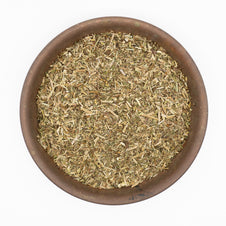
Epilobium
47 reviewsEpilobium
47 reviews- Low stock - 8 items left
- Inventory on the way
Country of Origin may differ from what is shown above.
A note on taste
Like many natural herbs, epilobium's taste can vary between harvests and sources. Our current conventional batch is more bitter than our previous organic batches due to different growing regions and drying methods. If you find the tea too strong, try reducing the amount used or brewing for a shorter time.
A member of the evening-primrose family (Onagraceae), epilobium can be found growing worldwide. Its common name willowherb comes from its willow shaped leaves and in some areas it is known as fireweed for its ability to reclaim ground that has been disturbed by forest fires.
Epilobium has a long history of use in medicine. Today, you will also find a number of cosmetic products contain Epilobium for its medicinal benefits.
The three main health benefits of Epilobium are:
Anti-inflammatory – Epilobium is traditionally used to treat an enlarged prostate due to its anti-inflammatory properties. This quality has also proven it to be a beneficial remedy against: gastrointestinal disorders, kidney and bladder disorders, rectal bleeding, menstrual disorders, cystitis, urinary infections, diarrhea, mouth lesions and irritable bowel syndrome. Some users have also found the plant to help combat against urinary incontinence.
Astringent – As a topical application, epilobium can help soothe skin disorders, including: minor burns, skin rashes, ulcers and skin irritations.
Antioxidant – The high levels of antioxidants found in epilobium also contribute to fighting bacteria commonly caused from skin conditions and internal disorders.
Other uses
Epilobium extract is commonly used in a wide selection of cosmeceuticals, ranging from creams, shampoos and baby wipes. This is primarily due to its astringent quality.
Uses and preparations
Infusion: Epilobium has been used as an infusion in tea throughout history, primarily for its use to combat prostate problems but has also been known to improve digestion and promote relaxation. Add 1-2 teaspoons of dried epilobium to a teapot and cover with boiling water. Leave your epilobium tea to brew for up to five minutes and strain before serving.
Tincture: Use epilobium for conditions such as UTIs in the form of a concentrated tincture, which can be applied directly under the tongue or mixed with water.
Infused oil: An epilobium infused oil can be beneficial for those using this plant for its astringent qualities, specifically if applying to the scalp.
Poultice: Applied to the skin, an epilobium poultice can help to relieve against skin irritations.
Precautions
If taken in too higher quantity, epilobium may cause nausea or indigestion.
Always consult your doctor before taking epilobium if you are taking any prescription medicines.
All information provided on this website is for informational purposes only. Please seek professional advice before commencing any treatment.






